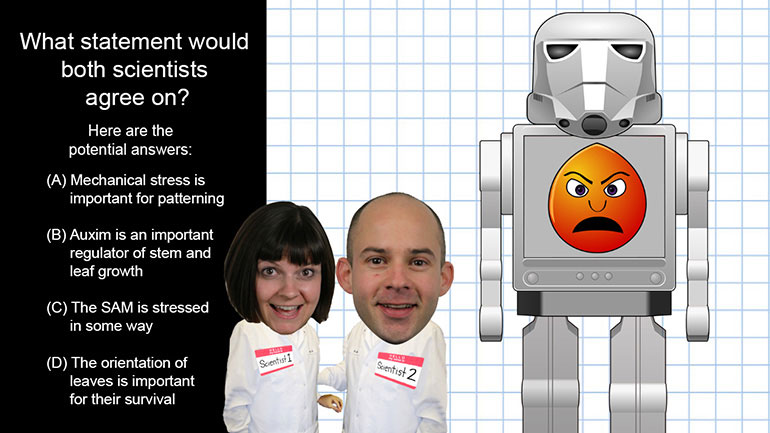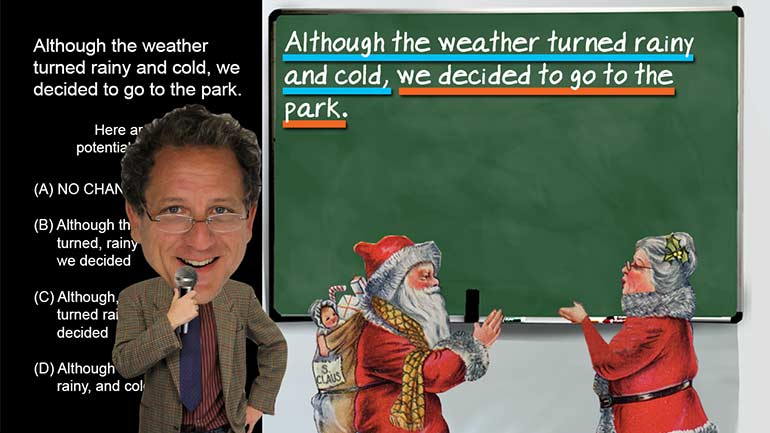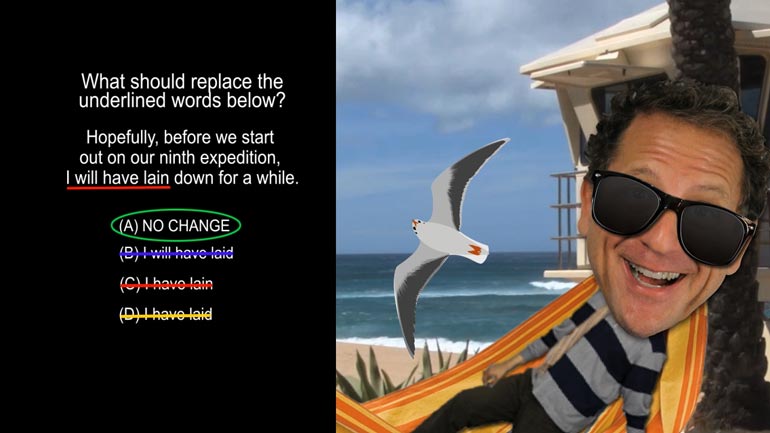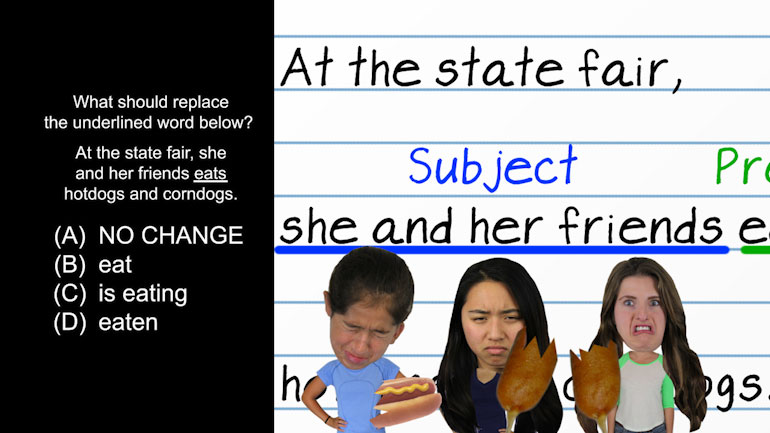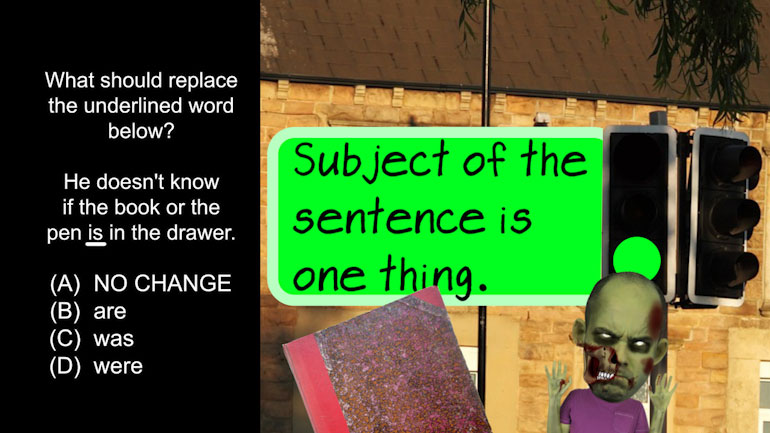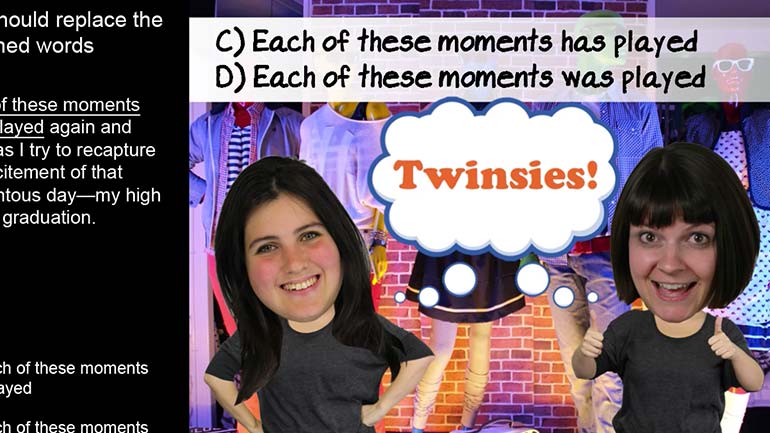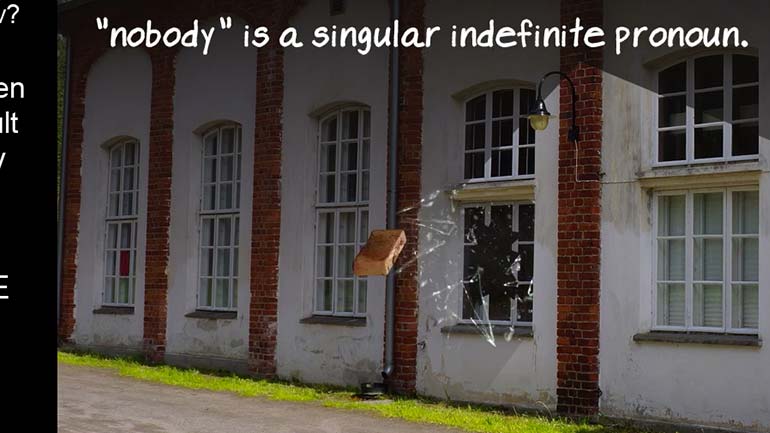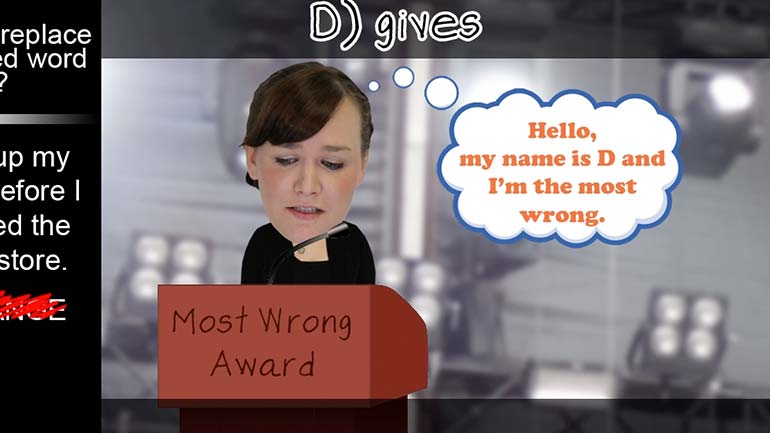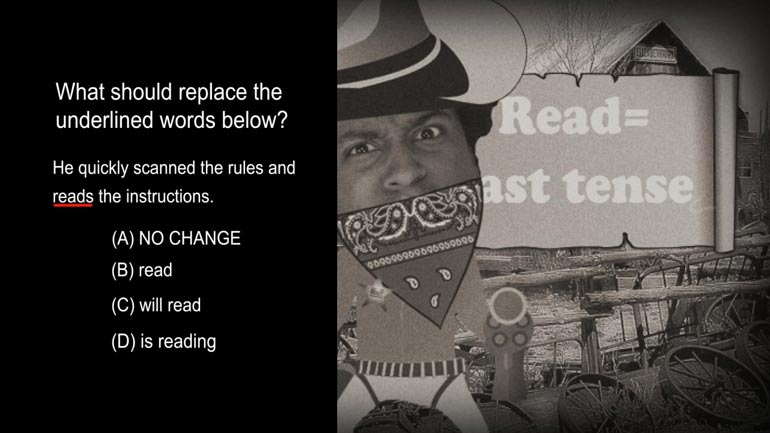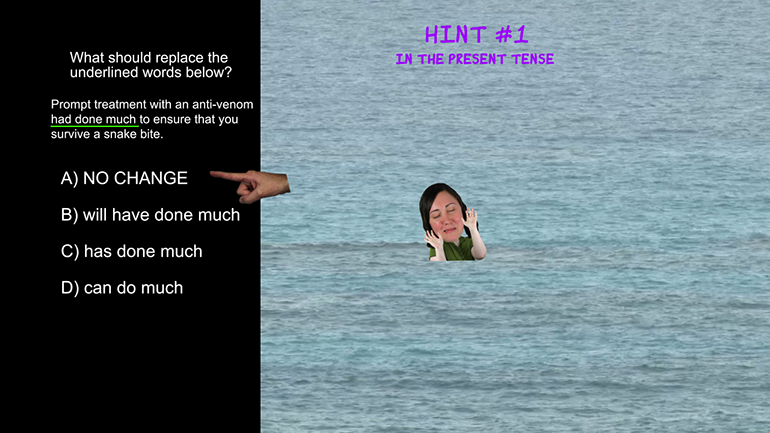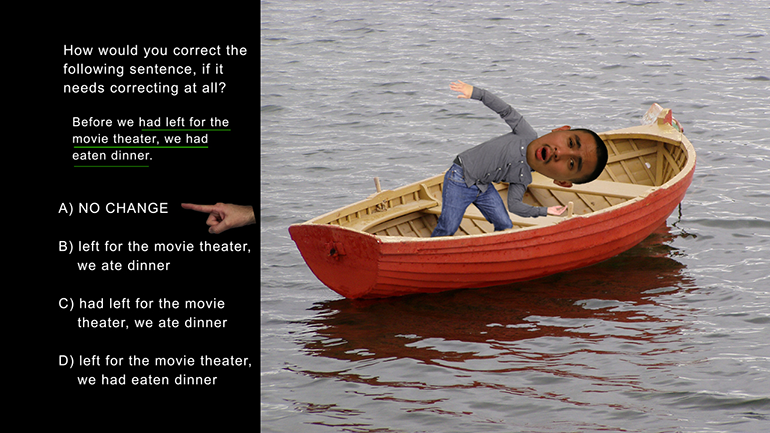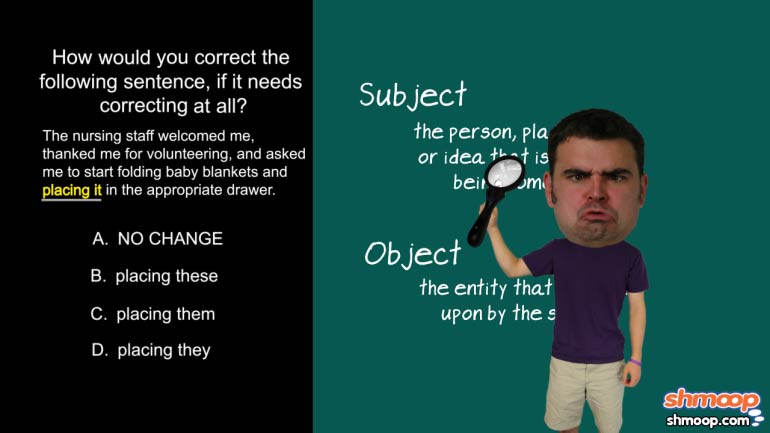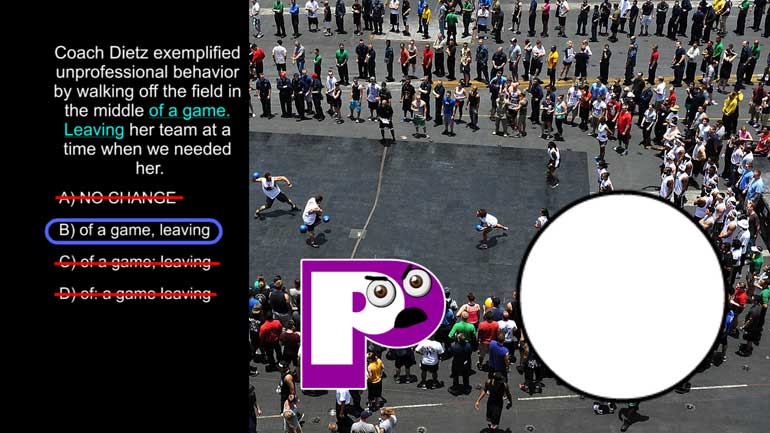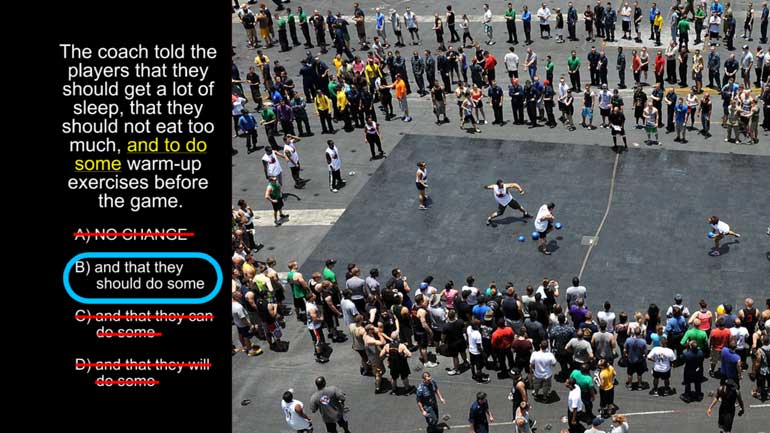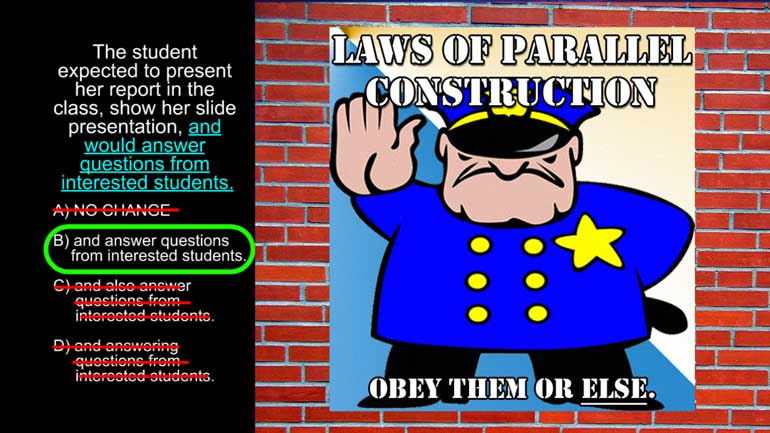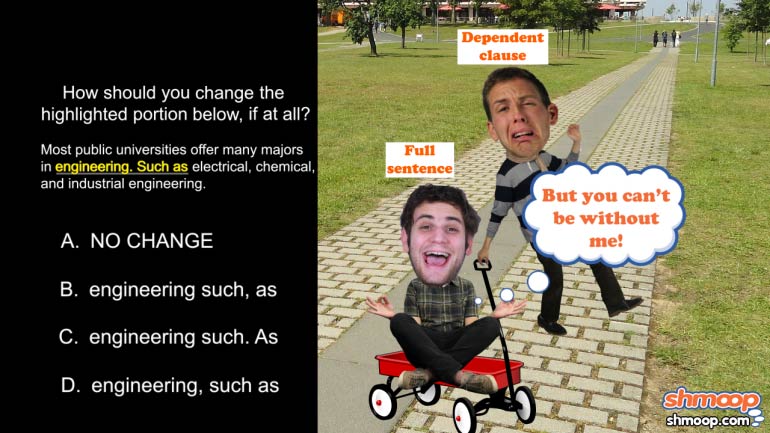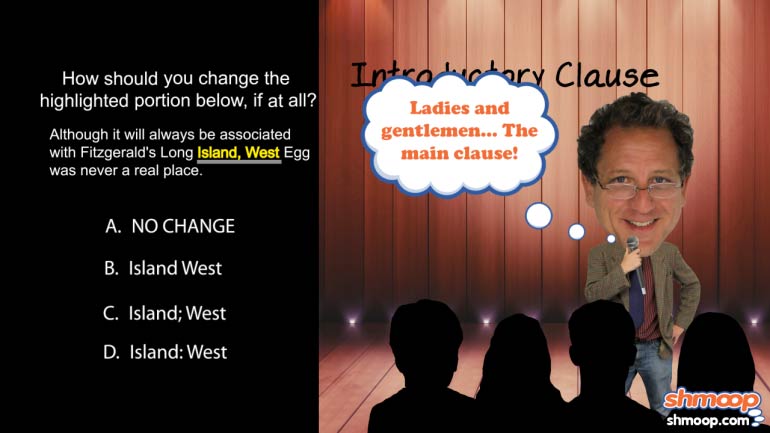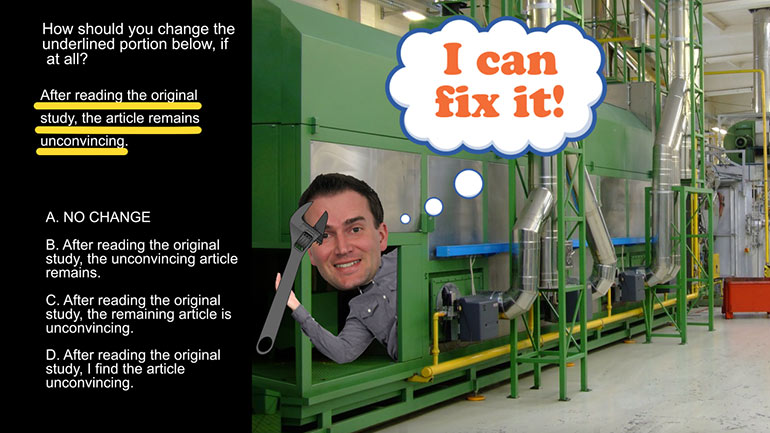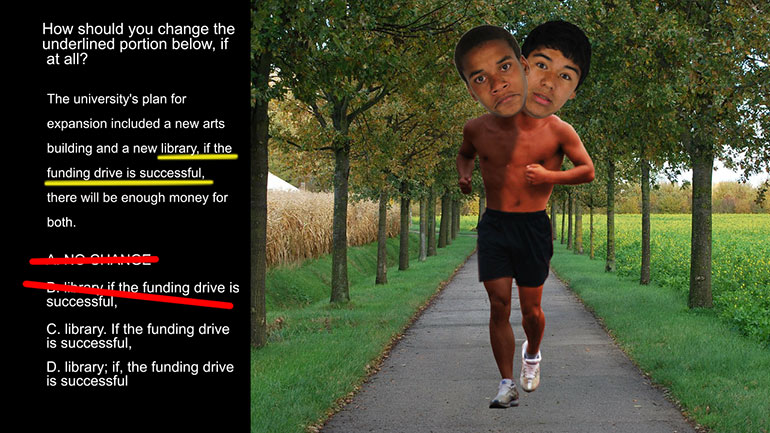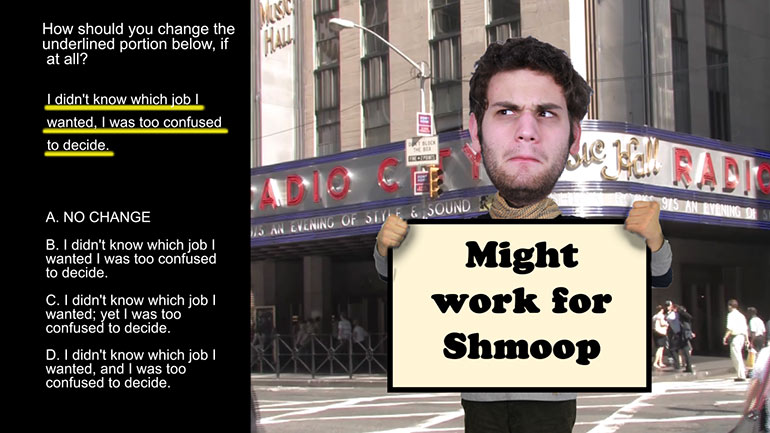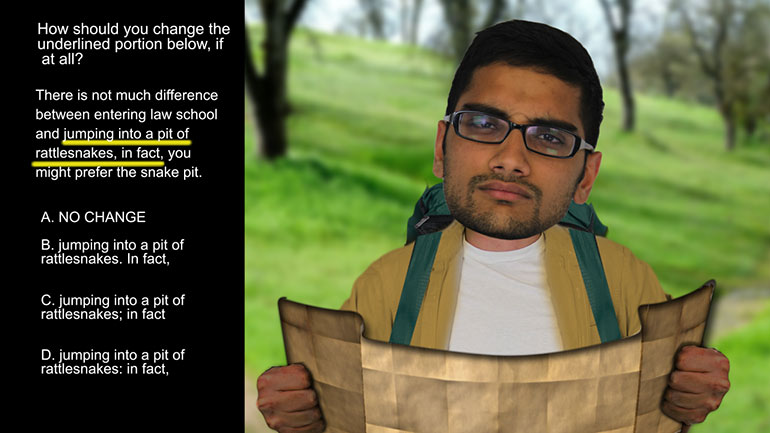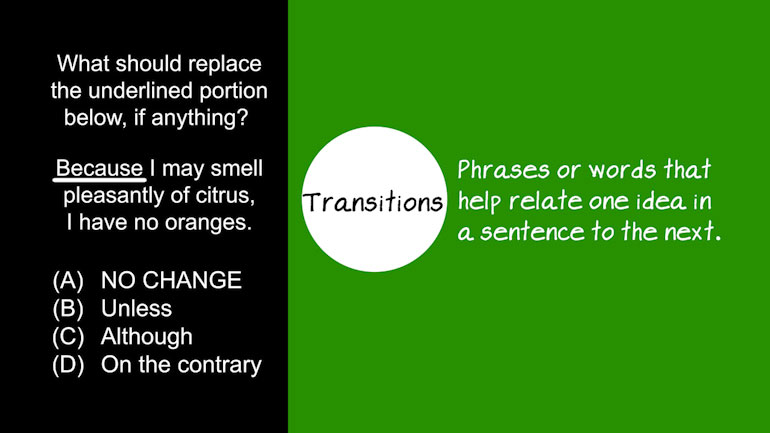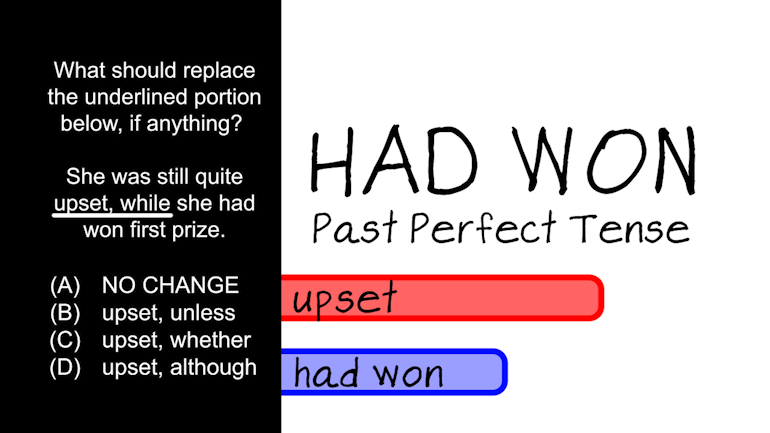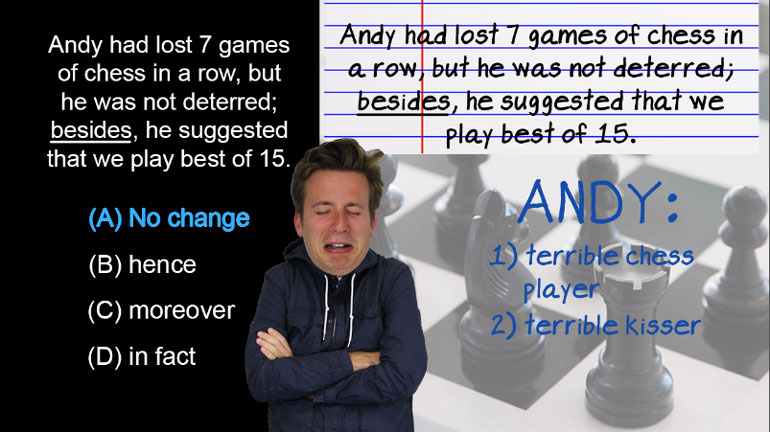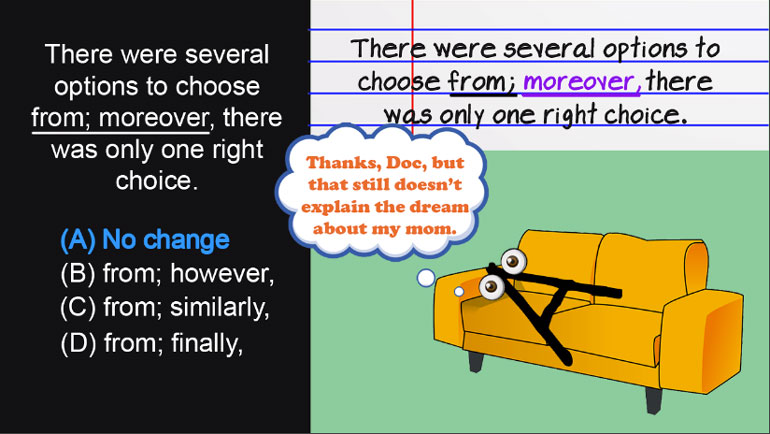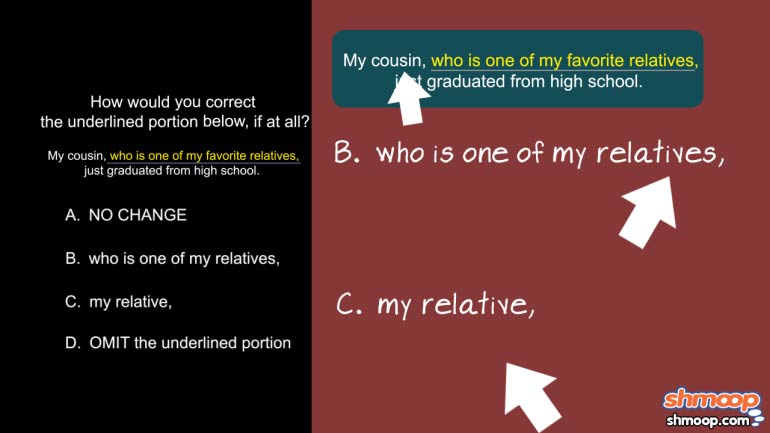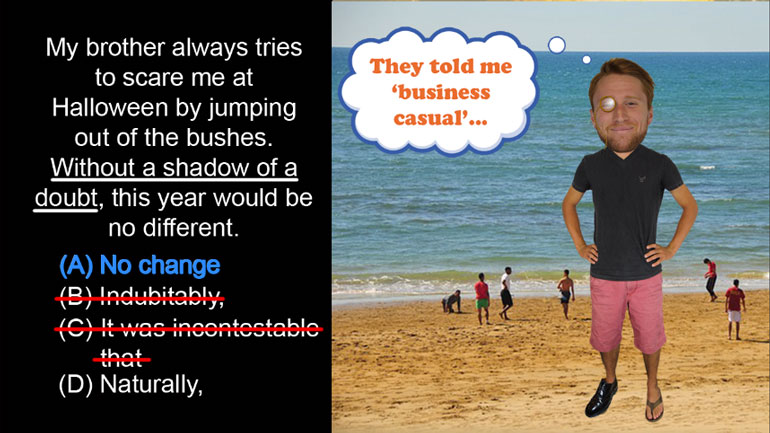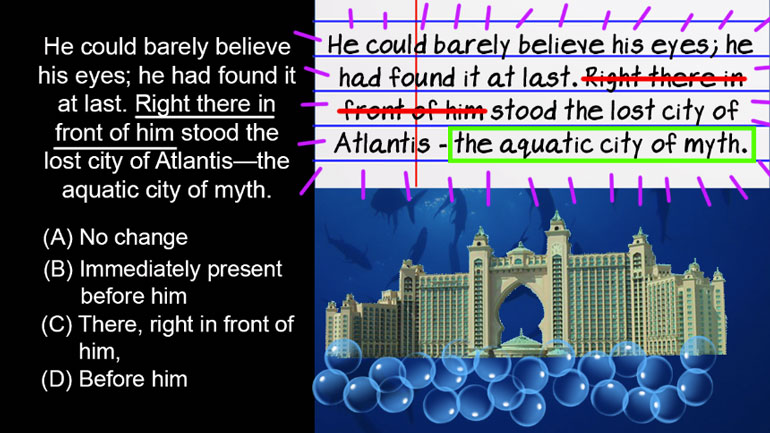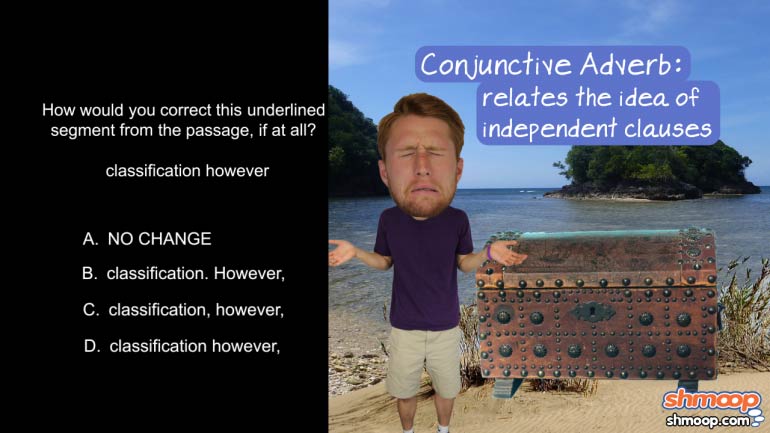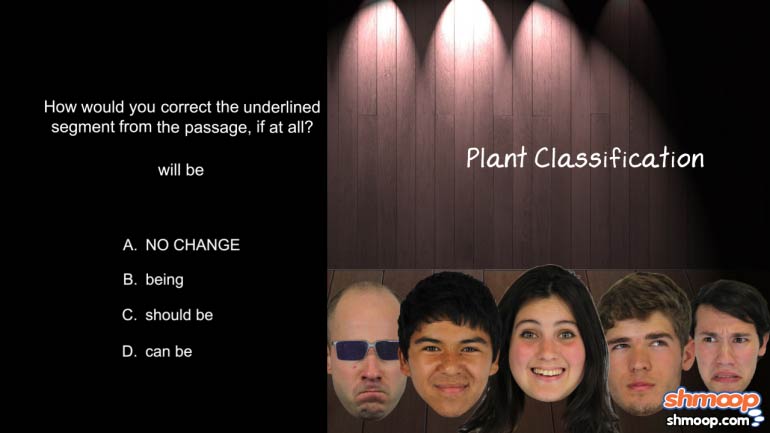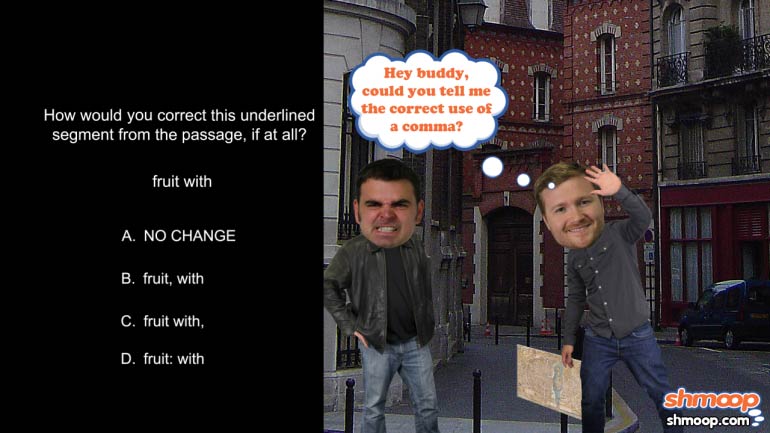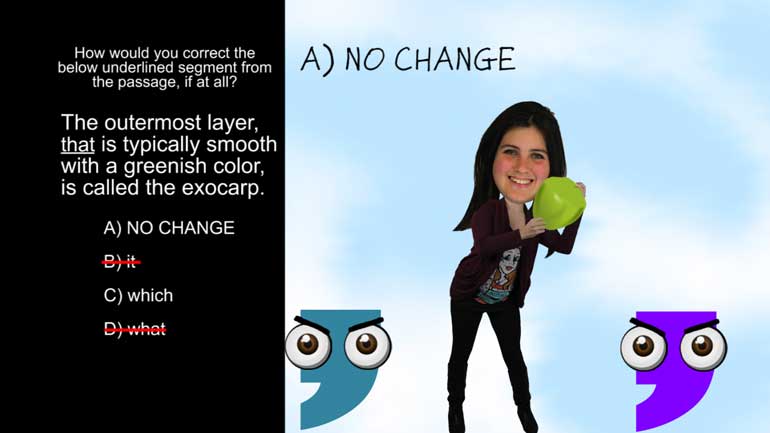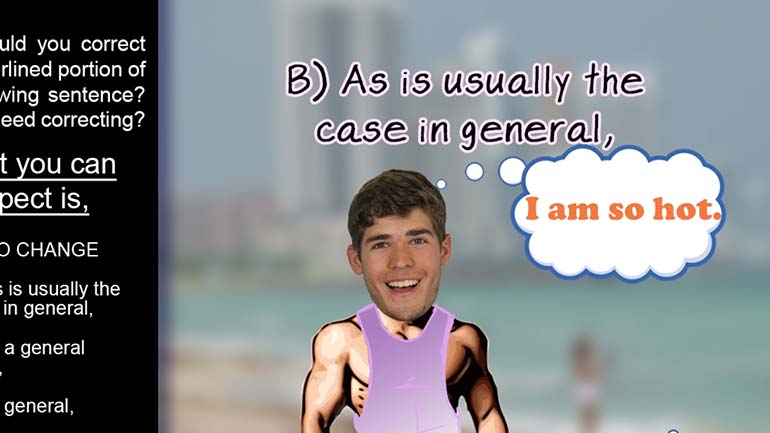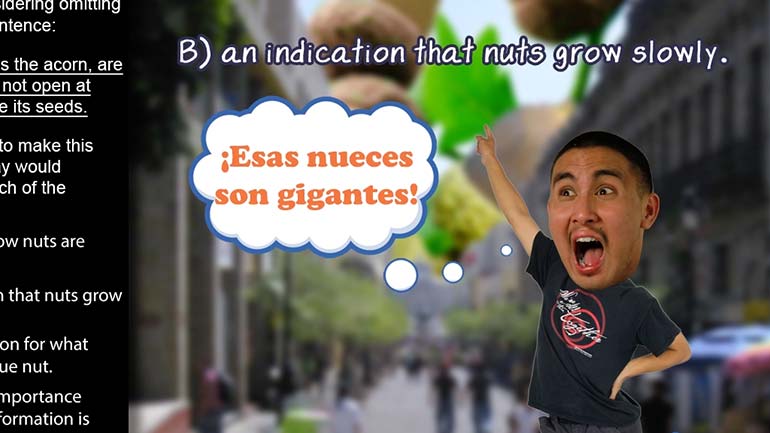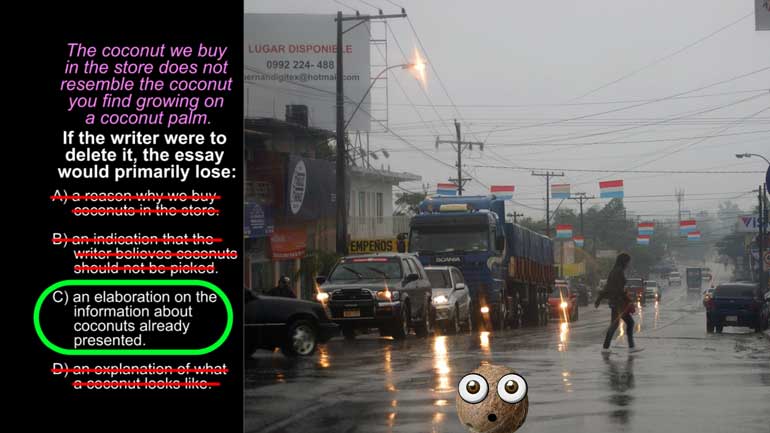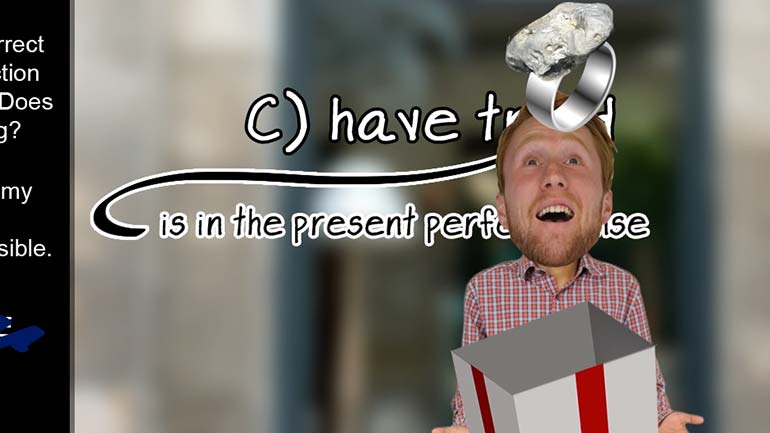ShmoopTube
Where Monty Python meets your 10th grade teacher.
Search Thousands of Shmoop Videos
ACT Videos 473 videos
ACT English: Punctuation Drill 3, Problem 4. Which choice best formats this list of items?
ACT English: Punctuation Drill 2, Problem 1. Which choice of punctuation best completes the sentence?
ACT English: Punctuation Drill 2, Problem 2. Where should the semi-colon be placed?
ACT English 1.11 Passage Drill 224 Views
Share It!
Description:
ACT English: Passage Drill Drill 1, Problem 11. How would you correct this introductory phrase?
Transcript
- 00:03
Here's your Shmoop du jour, brought to you by mature acorns. A more sophisticated kind of nut.
- 00:09
Check out the following passage and answer the question below.
- 00:28
How would you correct the underlined portion of the following sentence? Does it need correcting?
- 00:33
What you can expect is,
- 00:41
This question is looking for concision.
Full Transcript
- 00:46
The underlined portion is an introductory phrase, so its job is to set the stage for
- 00:51
the sentence to come. Usually, it's best to do this in as few words as possible. People
- 00:55
tend to tune out when it takes too long to get to the main event.
- 00:58
Choice (B) is redundant, making it an obvious elimination. "As is usually the case" and
- 01:04
"in general" get across the same basic meaning. Therefore, there's absolutely no need to use
- 01:08
both phrases--unless one enjoys being redundant.
- 01:10
(A) introduces the sentence with the phrase "what you can expect is." Not only is this
- 01:18
phrase wordy, it's also awkward because it implies that the rest of the sentence will
- 01:22
be in the future tense. If we're expecting something, that means it hasn't happened yet,
- 01:27
right? The verbs in the sentence--"are" and "buy"--are both in the present tense, so this
- 01:32
introductory phrase sets up a false expectation. Sorry, (A), but we hate being disappointed.
- 01:38
This brings us to choices (C) and (D), which offer the phrases "in a general case" and
- 01:42
"in general." Our choice isn't too hard since we know we want the shortest introductory
- 01:46
phrase possible. "In general" is the shortest option, making (D) the best answer.
- 01:51
The shortest option is often best, except in the NBA draft.
Related Videos
ACT English: Punctuation Drill 2, Problem 2. Where should the semi-colon be placed?
ACT English: Punctuation Drill 3, Problem 1. How should this sentence be changed so that it is grammatically correct?
ACT English: Punctuation Drill 3, Problem 2. How should we properly hyphenate the words in this sentence?
ACT English: Punctuation Drill 3, Problem 4. Which choice best formats this list of items?
ACT English: Punctuation Drill 2, Problem 1. Which choice of punctuation best completes the sentence?









